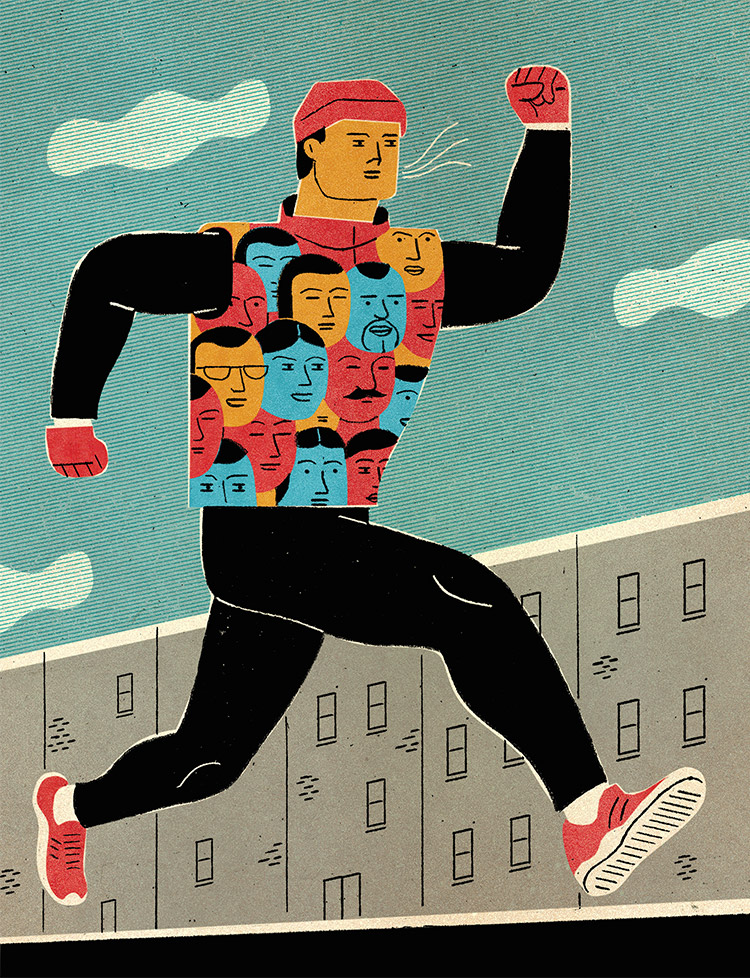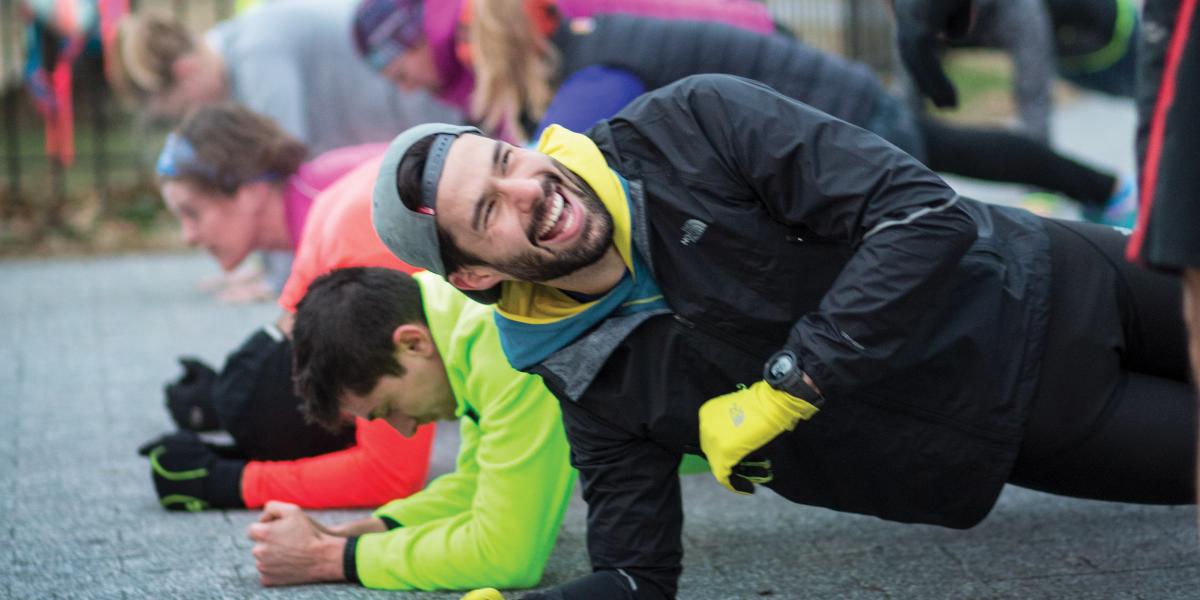The November Project’s Free Community Workout Has One Rule: Just Show Up
How a simple pledge ignited a movement built on community.
At 6 a.m. on a Wednesday in the middle of the winter of 2013, I was in a Harvard University parking lot struggling to change into running shorts in the front seat of my car. I had just woken up from an hour of sleep after an overnight drive from Baltimore.
I was there to participate in a workout with the November Project, which for the past year had been hosting free community workouts every Wednesday at Harvard Stadium. A college friend told me about it, and now I was here to see it for myself.
The November Project began in 2012 as a promise between former rowers Brogan Graham and Bojan Mandaric, who missed the community and commitment of college sports. Having people rely on you and hold you accountable was a cornerstone of rowing culture, so to mimic it, they pledged to work out together every Wednesday morning for the month of November.
November turned into December, and slowly, other people started to show up.
By the time I showed up to Boston in 2013, the November Project had spread to seven other cities in the U.S. and Canada. People loved the community emphasis at the workouts, whether that be in the frigid cold of Edmonton, Alberta, or on the state capitol steps of Madison, Wisconsin. The morning I arrived in Boston, hundreds of people cheered for each other as we sprinted up the steps of Harvard Stadium. It was exhilarating. By the end of the workout, I knew I had to bring the idea home to Baltimore.
I started November Project Baltimore in 2014 and became an MPH student at the Bloomberg School in 2017. In the three years between, every single Wednesday and Friday without fail, my partners and I hosted a free workout open to anyone willing to show up, regardless of the weather.
I didn’t recognize it at the time, but the November Project was public health in practice. We never called it that, but as November Project Baltimore workouts grew from five people to 10, to 50 and eventually 150 or more, it became clear that what we were doing might actually be making people’s lives better. Our emphasis was always on community, and it was the combination of friendship and free workouts that ultimately nudged people toward a healthier lifestyle.
Yet the more November Project Baltimore grew, the more we realized our shortcomings. Although our workouts are free, there are still hidden barriers to entry. Recognizing that, we started to move our workouts around the city and attend health fairs to reach people who might not otherwise find us. It’s hard, and we have a long way to go, but my MPH training helped me put these difficulties into context.
January marked my fifth year hosting November Project Baltimore, and I still learn from the experience. Recently, reflecting with an organizer from another city, I was struck by something she said: “I feel that there is no greater gift to others than your willingness to keep showing up for them. The world needs more people willing to simply be there when we’re needed.”
We use the expression “just show up” at the November Project frequently and for many reasons. We use it because there are no forms to fill out or dues to pay; showing up is all you have to do. We also say it because you can’t truly understand the November Project without showing up to a workout. But at the most basic, most truthful level, what we’re really saying is, “We need you to show up for each other.”
That’s the first step in whatever we hope to achieve—in public health or in life.

